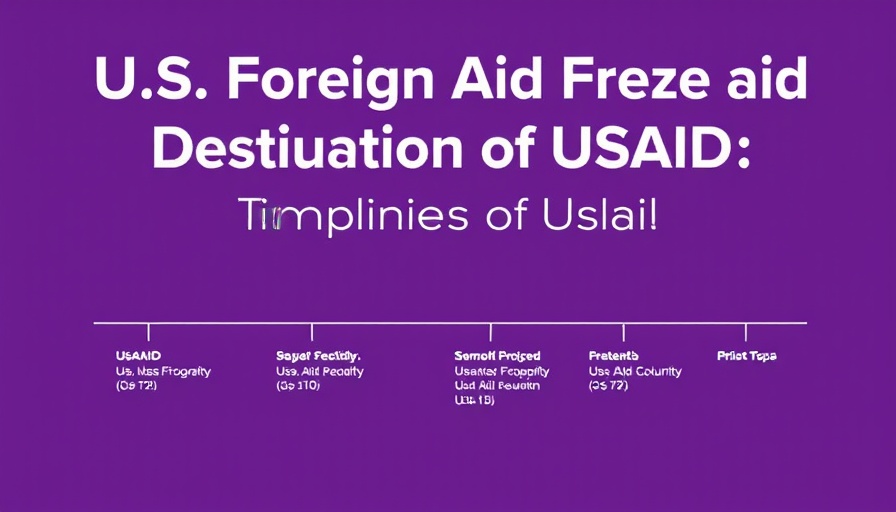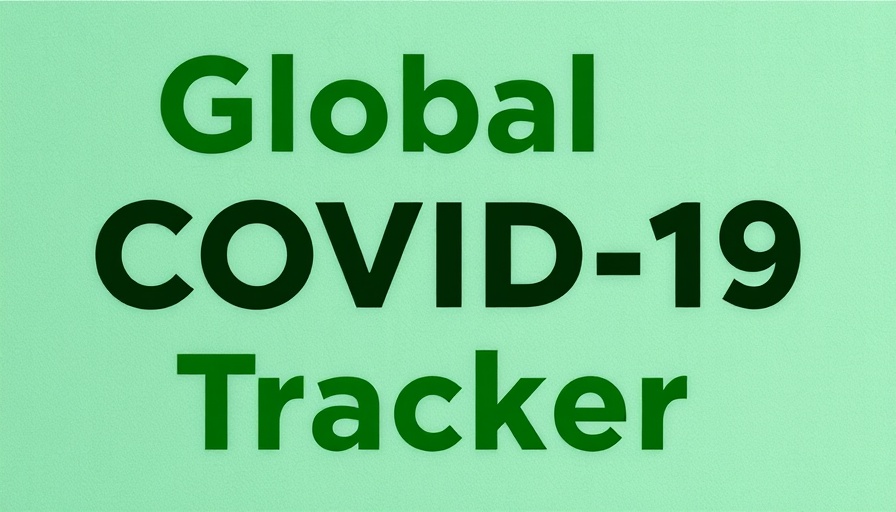
A Concerning Shift: The Freeze on U.S. Foreign Aid
The beginning of President Trump's second term has seen monumental changes in U.S. foreign policy, particularly regarding foreign aid. Starting on January 20, 2025, a significant freeze was put in place that halted nearly all foreign assistance programs, including the vital work done by the U.S. Agency for International Development (USAID). This sweeping pause has left many global health initiatives in disarray, directly affecting health programs that serve vulnerable populations around the world.
On-the-Ground Impacts: A Humanitarian Crisis in the Making
The repercussions of this freeze extend beyond bureaucratic challenges. With the cutting off of funds for critical health services, millions of lives are at stake; for instance, assistance necessary for preventing mother-to-child HIV transmission has come to a standstill. As noted by Human Rights Watch, the sudden termination of these services is not only reckless but could lead to serious humanitarian crises in already struggling communities. Countries heavily reliant on U.S. support, such as Eswatini and Zambia, may face devastating consequences without this crucial aid.
Global Health: The U.S. Role and Its Consequences
The United States has long been the largest donor to global health, providing 30% of all health assistance to low- and middle-income countries as of 2023. This dominance in funding has fostered dependency among recipient nations, making them particularly vulnerable to sudden cuts. With programs addressing HIV, tuberculosis, and malaria facing potential closure or severe cuts, the health of countless individuals hangs in the balance. The decrease in U.S. funding will not just disrupt these programs; it threatens the very data and infrastructure built over years of dedication and support.
Future Implications: The Path Ahead
As the timeline of these changes unfolds, it raises several pressing questions regarding the future of U.S. foreign policy and its commitment to global health. What will happen if countries cannot make up the shortfall caused by these cuts? Will other nations fill the gap left by the U.S. or will existing programs collapse entirely? The answers remain unclear, but one thing is certain: the implications are profound.
Engaging communities and advocating for a renewed commitment to global health can be a first step in addressing these issues head-on. As we navigate these challenging times, the call for action is more important than ever. Join in raising awareness and ensuring that foreign aid remains a pillar of U.S. policy.
 Add Row
Add Row  Add
Add 




Write A Comment